Kingston HyperX Dual Channel 2133Mhz CL9 Memory Review
Author: Dennis Garcia
Published: Friday, July 15, 2011
Benchmarks - Overclocked
As with all of our reviews we pit the default speed system against the overclocked one in a head to head byte match. The results of this are below. The effective overclock here is 3.65Ghz with a BCLK of 104.3Mhz for a resulting memory clock of 2225Mhz. This is a modest overclock that most anyone can do, it also marks the limit we could push these modules without system errors.
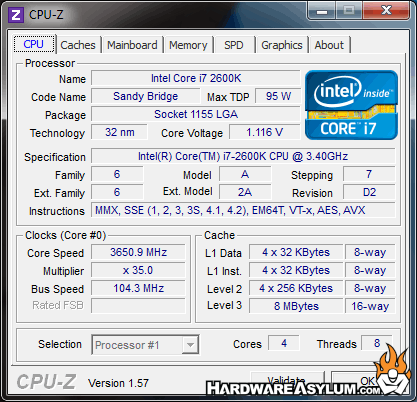

SiSoft Sandra Various Overclocks
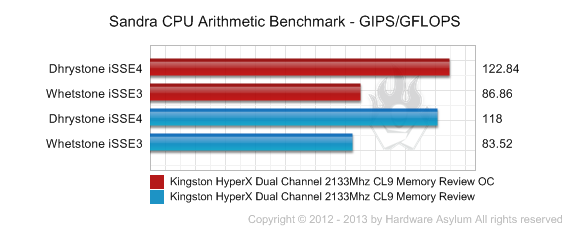
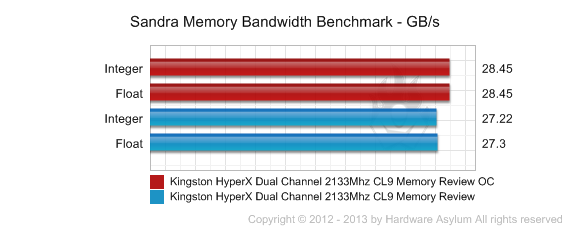
AIDA64 Extreme Edition
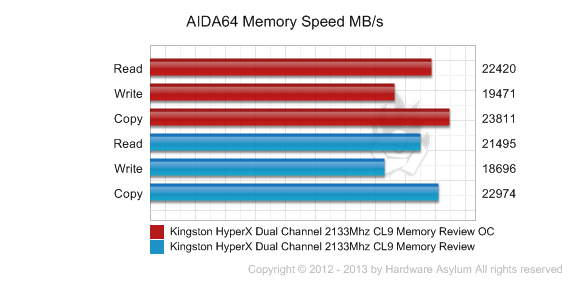

Unreal Tournament 3

Crysis
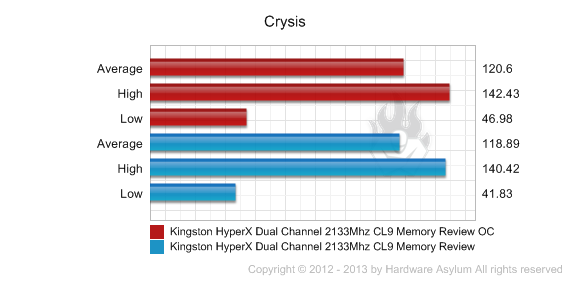
Overclocking Conclusion
High speed modules, like the ones we are testing, are designed to help facilitate overclocking and give the user the most control over BLCK adjustments and memory multiplier settings. Once a frequency limit has been hit you can simply drop the multiplier and push on. Sometimes you can get lucky and get more by lowering the timings or raising the VDimm but the net effect can sometimes lead to unexpected failures.
During our overclocking tests we did have some luck getting these modules to run at higher frequencies with lower memory timings but voltage adjustments were completely unresponsive. Looking at the gaming results we can see that overclocking actually hurt overall performance. Our Sandra results tell us that the overclock is working however performance dropped when it came to real-world results.
These things happen which basically means the XMP profiles have been tuned to offer the best performance at their rated speeds. Looking over some of our past memory reviews we can see that our theory is supported given that overclocking performance on those reviews matches the default performance found with these HyperX modules.
During our overclocking tests we did have some luck getting these modules to run at higher frequencies with lower memory timings but voltage adjustments were completely unresponsive. Looking at the gaming results we can see that overclocking actually hurt overall performance. Our Sandra results tell us that the overclock is working however performance dropped when it came to real-world results.
These things happen which basically means the XMP profiles have been tuned to offer the best performance at their rated speeds. Looking over some of our past memory reviews we can see that our theory is supported given that overclocking performance on those reviews matches the default performance found with these HyperX modules.

